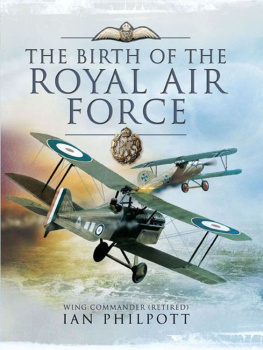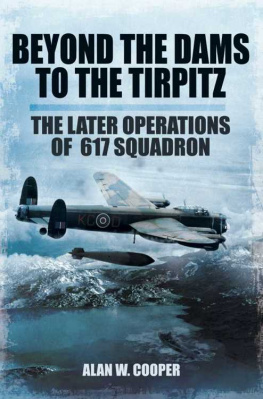First published in Great Britain in 2013 by
PEN & SWORD AVIATION
An imprint of
Pen & Sword Books Ltd
47 Church Street
Barnsley
South Yorkshire
S70 2AS
Copyright Bruce Gibson, 2013
ISBN 978 1 78159 089 8
EPUB ISBN: 978 1 47382 244 3
PRC ISBN: 978 1 47382 196 5
The right of Bruce Gibson to be identified as Author of this Work
has been asserted by him in accordance with the Copyright,
Designs and Patents Act 1988.
A CIP catalogue record for this book is
available from the British Library
All rights reserved. No part of this book may be reproduced or transmitted in
any form or by any means, electronic or mechanical including photocopying,
recording or by any information storage and retrieval system,
without permission from the Publisher in writing.
Printed and bound in England
By CPI Group (UK) Ltd, Croydon, CR0 4YY
Pen & Sword Books Ltd incorporates the Imprints of Pen & Sword Aviation,
Pen & Sword Family History, Pen & Sword Maritime, Pen & Sword Military,
Pen & Sword Discovery, Pen & Sword Politics, Pen & Sword Atlas,
Pen & Sword Archaeology, Wharncliffe Local History, Wharncliffe True Crime,
Wharncliffe Transport, Pen and Sword Select, Pen and Sword Military Classics,
Leo Cooper, The Praetorian Press, Claymore Press, Remember When,
Seaforth Publishing and Frontline Publishing.
For a complete list of Pen & Sword titles please contact
PEN & SWORD BOOKS LIMITED
47 Church Street, Barnsley, South Yorkshire, S70 2AS, England
E-mail:
Website: www.pen-and-sword.co.uk
CONTENTS
PROLOGUE
L ife is full of light and shade, good news and bad news, joys and sorrows, and the year 1936 was no exception.
But this is to be a happy book, and although we can acknowledge the sad events of that year such as the deaths of King George V, and one the most famous poets, Rudyard Kipling (who was never to become Poet Laureate), I want to concentrate on the successful events that also happened.
This was a buoyant year when England beat the All Blacks at Rugby for the first time, filling the nation with joy. Golden Miller won the Cheltenham Gold Cup for the fifth time in succession and made us all happy, and the Spitfire aircraft made its maiden flight, lightening our hearts and creating a feeling of great pride among the impending gloom.
But above all, the most joyful occurrence, and one which was to completely change my life, was when the Air Ministry announced the formation of the Royal Air Force Volunteer Reserve (RAFVR).
I remembered what my Uncle Chris told me about what he had endured during the First World War, when at one time he was standing up to his waist in mud and water in the trenches for a fortnight.
By the time he was relieved his feet had swollen to twice their normal size and he was sent to the Sick Quarters, diagnosed with Trench Foot. I was determined that I was going to have none of that and so, in 1937, I joined the RAFVR. This was a triumph in itself as the Medical Officers did their absolute best to fail me but, against all odds, I was accepted and my life was never the same again!
So, if you are sitting comfortably, Ill begin
* * *
1913
I was born in Plaistow, in the Borough of West Ham, on 28th May 1913, at 20 Redriffe Road, Plaistow, E13.
The name Plaistow means Play Place, and many moons ago it was spelt Pleystow. By the time I was born, the pronunciation had become Plarstow, but that was in a time when most houses were rented out to the working classes and who were relatively poor.
By then the whole area was largely built up and formed a part of the Greater London sprawl. In my maternal Grandmothers day however, it was completely rural and she lived in an area known as Stratford, and was a village approached from all sides by large Elm trees.
In her day the main wealth of Plaistow was derived from the grazing land in the area on which stock was fattened.
Some very wealthy men had large houses and estates in Plaistow, one of whom was a Mr. Foot who was a former Lord Mayor of London and was buried in the West Ham Churchyard.
The word Hamme is an Anglo Saxon word, recorded in the Doomsday book, and means home or residence, and it is from this that the names West Ham and East Ham are derived.
As what can only be presumed a testimony to love, it was here that King Henry VIII ordered the construction of the Anne Boleyn Tower, from where it was possible to see the Thames, which today is over a mile away. Ironically, it was also from this Tower that she was taken to the Tower of London prior to her death.
Stratford was renowned as the Slaughter House of London, and my Grandmother Nan often mentioned the cries of sheep as they were taken to slaughter.
Many noteworthy events occurred in the year of my birth.
The Suffragettes stepped up their military campaign and Mrs. Pankhurst was a very naughty lady in her efforts to get the votes for women and, although she was for ever in and out of prison, this did not deter her followers. Mrs. Emily Davison, a fellow Suffragette, flung herself in front of the Kings horse at the Derby that year and died the following day without regaining consciousness.
Police in London seized a woman for simply wearing a split skirt!
Germany launched the first flight of the largest Zeppelin Airship, which was later to explode with the loss of all who were on board.
French aviator Roland Garros gained fame for making the first non-stop flight across the Mediterranean from Frjus in the South of France to Bizerte in Tunisia, a distance of 558 miles, and which took 5 hours and 53 minutes, even against strong headwinds. The French also set a new air speed record of 118 mph.
Sir Amroth Wright, a British bacteriologist and immunologist, was either tired of living or just stupid and wrote an anti suffrage book claiming that women were inferior to men!!
On the day of my birth, King George V and Queen Mary, as honoured guests of the Kaiser, were present at the annual review of the Troops of the Potsdam Garrison by the Emperor of Germany, and from whom later they took a cordial farewell.
Whilst all of these exciting things were happening, the most important event in the Gibson family was my mother going into labour and finally succeeding in evacuating me! During the previous nine months she must have been constantly talking to me, as one of the very first phrases I can remember is my mother saying, Votes for women rats on the men!!
Redriffe Road was one of three short roads leading from Plaistow Road to Stratford Road and as far as I can remember had about 30 houses on either side of the road. The houses were numbered even on one side, and odd on the other. They were built at the turn of the century and were of solid construction with yellow bricks (which harden with age) and grey-slated roofs.
When I was born my parents already had two children my big sister Jess, who was 4 years and eleven months older than me, and my brother Cyril, who was just eleven days short of his second birthday. We lived in an upstairs flat above Mrs. Mason and her family.
In the house opposite was a family with two girls who appeared to me quite ancient, being about six and eight years of age respectively. When I was about 18 months old, one of those girls had a birthday party, and we three Gibsons were invited. Young as I was, I can remember having jelly, blancmange, cakes and orange squash to drink, followed by a grand singing session around a piano.
Everybody was in a happy, party mood, wearing paper hats that we had won from pulling crackers amidst great excitement! The songs we sang that day were the first I had ever heard, and I was later to learn that they were all from the First World War, songs such as: Are we downhearted? No!; Its a long way to Tipperary; Keep the homes fires burning, and Howre you gonna keep them down on the farm after theyve seen Paris! Our repertoire was so limited that we had to sing the same songs over and over again by the end of the party I knew all of the songs and words by heart and in my nostalgic moments I remember them with great affection to this day.
Next page
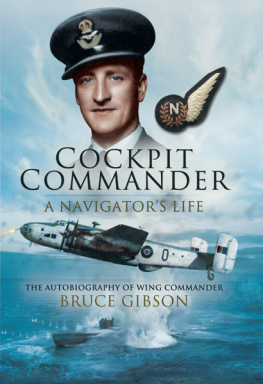
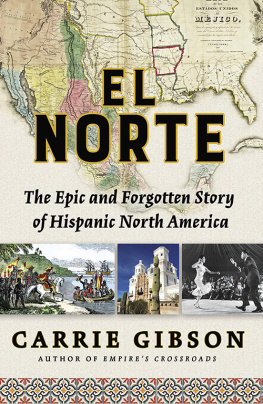
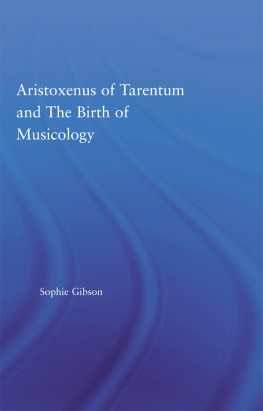
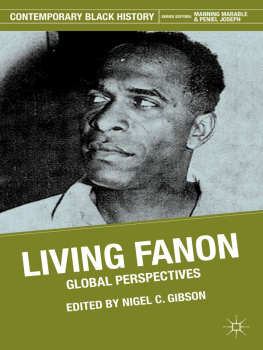
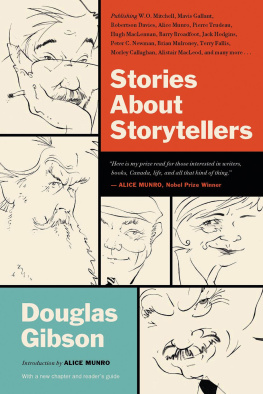

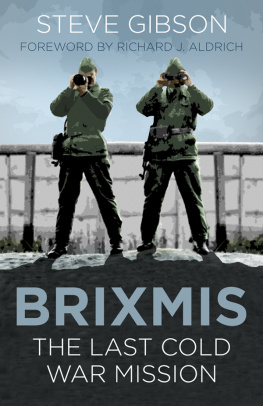
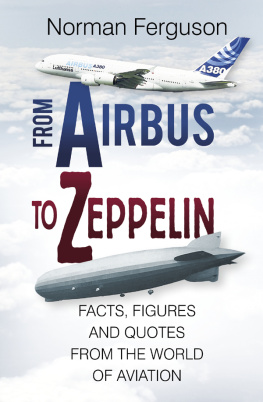


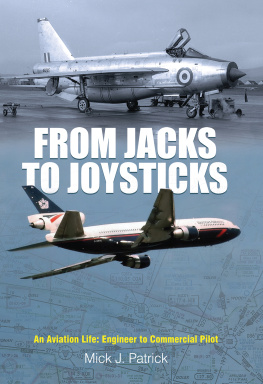

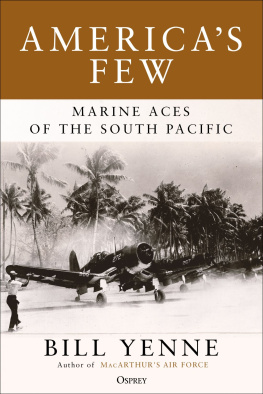
![Bar Wing Commander Guy P. Gibson VC DSO - Enemy Coast Ahead [Illustrated Edition]](/uploads/posts/book/180257/thumbs/bar-wing-commander-guy-p-gibson-vc-dso-enemy.jpg)
